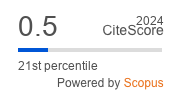先天性凝血因子VII缺乏症患者的分娩临床管理特点:病例报告
https://doi.org/10.47093/2218-7332.2020.11.4.36-42
摘要
摘要
先天性凝血因子VII缺乏症-指罕见的出血性素质,为此尚未制定出统一的怀孕和分娩管理方法。 文章介绍了4名患先天性凝血因子VII缺乏症的孕妇止血策略分析。
病例报告
所有患者均无或仅有最低程度出血性综合征病史。其中两名孕妇的凝血因子VII缺乏症是在怀孕期间确诊的。分娩期间通过给予重组活化的凝血因子VII(rFVIIa)进行止血(两阴例道分娩,两例剖宫产):对两名患者,按15-30gµg/kg的剂量单次给药,另一名按相同剂量间隔12小时两次给药,最后一名患者则给予传明酸。均未发现出血性或血栓性并发症。 怀孕期间的血栓弹力图(TEG)与凝血因子VII缺乏症的严重程度不一致:在FVII活性<5%时,TEG参数显示血液高凝状态。
讨论
血浆中凝血因子VII活性水平与出血性综合征的严重程度之间存在弱相关性。 凝血因子VII缺乏症患者的分娩方式应根据产科标准决定。 在大多数情况下,在分娩开始时或在进行剖宫产之前,单次施用重组活化的凝血因子VII(rFVIIa)是足够的,剂量为15-30µg/kg。
关于作者
A. Yu. Bulanov俄罗斯联邦
Andrey Yu Bulanov, Dr. of Sci. (Medicine), Head of the Mobile resuscitation transfusion team,
3, Pekhotnaya str., Moscow, 123182
S. E. Rabotinsky
俄罗斯联邦
Stanislav E. Rabotinsky, doctor of the Mobile resuscitation transfusion team,
3, Pekhotnaya str., Moscow, 123182
E. L. Bulanova
俄罗斯联邦
Ekaterina L. Bulanova, Cand. of Sci. (Medicine), Associate professor, Department of Anesthesiology and Resuscitation, 3, Pekhotnaya str., Moscow, 123182;
doctor of the Mobile resuscitation transfusion team, 8/2, Trubetskaya str., Moscow, 119991
I. B. Simarova
俄罗斯联邦
Irina B. Simarova, doctor of the Mobile resuscitation transfusion team,
3, Pekhotnaya str., Moscow, 123182
T. S. Kotomina
俄罗斯联邦
Тatiana S. Kotomina, Cand. of Sci. (Medicine), Head of the Maternity Department, branch,
3, Pekhotnaya str., Moscow, 123182
I. Yu. Sizova
俄罗斯联邦
Irina Yu. Sizova, Cand. of Sci. (Medicine), Head of the Department of Anesthesiology and Resuscitation,
3, Pekhotnaya str., Moscow, 123182
参考
1. Oyelese Y., Ananth C.V. Postpartum haemorrhage: epidemiology, risk factors and causes. Clin Obst Gynacol. 2019; 32 (3): 147–156. https://doi.org/10.1097/GRF.0b013e3181cc406d PMID: 20142652
2. Hawke L., Grabell J., Sim W., et al. Obstetric bleeding among women with inherited bleeding disorders: a retrospective study. Haemophilia. 2016; 22(6): 906–11. https://doi.org/10.1111/hae.13067 PMID: 27704714
3. Kadir R., Chi C., Bolton-Maggs P. Pregnancy and rare bleeding disorders. Haemophilia. 2009; 15(5): 990–1005. https://doi.org/10.1111/j.1365-2516.2009.01984.x PMID: 19298378
4. Kulkarni A.A., Lee C.A., Kadir R.A. Pregnancy in women with congenital factor VII deficiency. Haemophilia. 2006; 12(4): 413–6. https://doi.org/10.1111/j.1365-2516.2006.01287.x PMID: 16834763
5. Baumann Kreuziger L.M.B., Colleen T., Morton C.T., Reding M.T. Is prophylaxis required for delivery in women with factor VII deficiency? Haemophilia. 2013; 19(6): 827–32. https://doi.org/10.1111/hae.12167 PMID: 23607277
6. Sevenet P.O., Kaczor D.A., Depasse F. Factor VII deficiency: from basics to clini







































